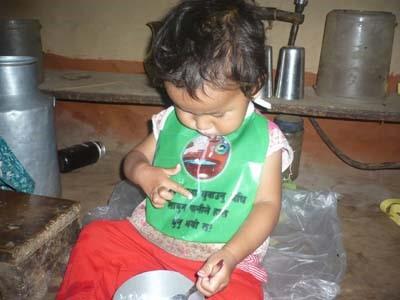Om's Food Hygiene Intervention - March 2013

Rushed off my feet
I've been extremely busy and exciting since my last blog! My team and I have worked hard to finalise a simple and scalable food hygiene promotion package.The final package includes lots of motivational tools, materials, demonstration and public pledging exercises. Our aim was to avoid traditional behaviour change tools such as posters or leaflets, and instead using more creative tools.
The food hygiene promotion package was designed using a campaign approach. The campaign centred on an 'Ideal Mother Concept' with supportive branding such as a logo, colour scheme, and a kitchen makeover plan. The package was designed to be implemented over three months, which includes six community events and six household visits to motivate mothers to practise safe food hygiene behaviours. We developed a campaign implementation guideline that provided detail sessions plan for each events or visits. Each event is designed around a specific motivational theme such as nurture, disgust, affiliation and social respect, and so engages different tools and materials, while linking to the five prioritized positive behaviours.
What will the package include?
The package includes various tools including storytelling, situation analysis flex, video clips, 3D flip charts, demarcation of the kitchen using branded ribbon and flag, public commitment & use of commitment certificates, use of glo-germs, eye danglers (main board highlighting five behaviours, small danglers linking with each behaviours, fan, fire blowing instrument), folk song competition, teaching the participants demo exercise, public pledging, musical chair game, disgusting exercise, child's real life game, puzzle game, innovative letter exchange, peer review exercise, pile shorting, ideal mother competition, clean kitchen competition, safe food hygiene zone declaration and so on.
As you can see, we are using a great number of materials and tools and it is difficult to describe them all here! Here's an example of the materials used:


